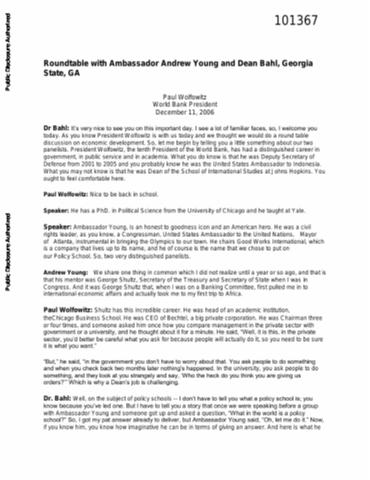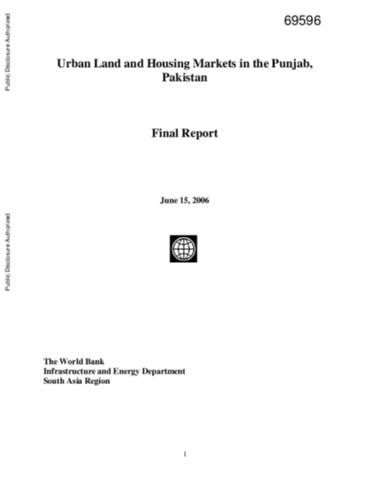The World Bank is a vital source of financial and technical assistance to developing countries around the world. We are not a bank in the ordinary sense but a unique partnership to reduce poverty and support development. The World Bank Group has two ambitious goals: End extreme poverty within a generation and boost shared prosperity.
- To end extreme poverty, the Bank's goal is to decrease the percentage of people living on less than $1.25 a day to no more than 3% by 2030.
- To promote shared prosperity, the goal is to promote income growth of the bottom 40% of the population in each country.
The World Bank Group comprises five institutions managed by their member countries.
The World Bank Group and Land: Working to protect the rights of existing land users and to help secure benefits for smallholder farmers
The World Bank (IBRD and IDA) interacts primarily with governments to increase agricultural productivity, strengthen land tenure policies and improve land governance. More than 90% of the World Bank’s agriculture portfolio focuses on the productivity and access to markets by small holder farmers. Ten percent of our projects focus on the governance of land tenure.
Similarly, investments by the International Finance Corporation (IFC), the World Bank Group’s private sector arm, including those in larger scale enterprises, overwhelmingly support smallholder farmers through improved access to finance, inputs and markets, and as direct suppliers. IFC invests in environmentally and socially sustainable private enterprises in all parts of the value chain (inputs such as irrigation and fertilizers, primary production, processing, transport and storage, traders, and risk management facilities including weather/crop insurance, warehouse financing, etc
For more information, visit the World Bank Group and land and food security (https://www.worldbank.org/en/topic/agriculture/brief/land-and-food-security1
Resources
Displaying 4806 - 4810 of 4907Remarks at Washington Legislators Forum on Climate Change, Washington, D.C., February 14, 2007
Paul Wolfowitz, President of the World Bank, remarked that we are seeing today an emerging global consensus that we must do something about climate change. But equally important is the agenda to reduce poverty. We face this double challenge of reducing damaging carbon emissions, and still meeting the energy demands of the world’s poor.
Rural land certification in Ethiopia: process, initial impact, and implications for other African countries
Although many African countries have adopted highly innovative and pro-poor land laws, lack of implementation hinders their potentially far-reaching impact on productivity, poverty reduction, and governance. To assess the effects of these pro-poor land laws and analyse whether the existing doubts are justified, this report draws on the experience of Ethiopia which, over a period of 2-3 years, registered the majority of rural lands in a rapid process at rather low cost.
Roundtable Discussion on Economic Development, Georgia State, GA, December 11, 2006
Paul Wolfowitz, President of the World Bank, and Ambassador Andrew Young engaged in a roundtable discussion on economic development, moderated by Dean Bahl of Georgia State. Wolfowitz has made Africa the first priority of the Bank. There is really a chance for Africa to turn the corner. It’s going to have to start with the best performers, doing what the so-called Tigers did in East Asia, showing the way for other countries. Young said you can make more money honestly in a growing economy, than you can steal in a dying economy. Wolfowitz gave examples of the turnaround in Africa.
Urban Land and Housing Markets in the Punjab, Pakistan
This note provides a short overview of urban land and housing market performance in Punjab Province of Pakistan. It describes the characteristics of well-functioning urban land and housing markets and argues that, at present, the Punjab's urban land and housing markets are not performing well. The paper identifies a range of structural and institutional shortcomings that impede urban land market performance, and then concludes by offering recommendations for making land and housing markets functions better.
Land conflicts in Kenya: causes, impacts, and resolutions
Because of changes in some underlying factors, land is increasingly becoming a source of conflicts in Africa. We estimate the determinants of land conflicts and their impacts on input application in Kenya by using a recent survey of 899 rural households. We find that widows are about 13 percent more likely to experience pending land conflicts when their parcels are registered under the names of their deceased husbands than when titles are registered under their names.










